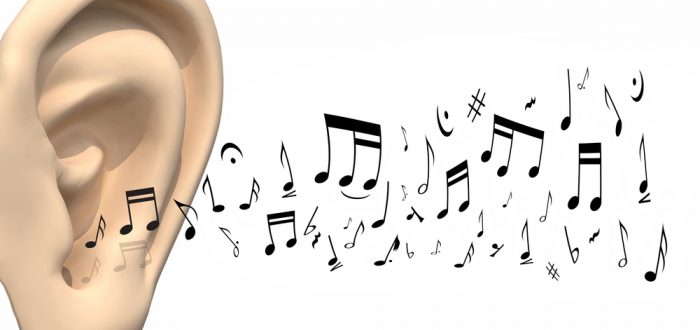If you’ve ever experienced symptoms of tinnitus, you’re not alone. It’s estimated that over 50 million Americans experience the condition. Tinnitus is a “phantom” auditory perception. What that means is that in most cases, the sounds being heard are not produced outside the body.
The most commonly reported sounds associated with tinnitus include: buzzing, ringing and hissing. Although rare, some people report hearing music. Like the phantom buzzing or hissing, this music is not actually there.
What is Musical Ear Syndrome?
Musical Ear Syndrome, or MES, are auditory hallucinations. They often manifest as a song or instrumental music. MES affects people with hearing loss.
Musical Ear Syndrome can sometimes be confused with dementia, particularly in older sufferers. Some researchers believe MES to be a variation of Charles Bonnet syndrome – where people who are visually impaired experience visual hallucinations.
Who Can Get Musical Ear Syndrome?
More commonly seen in older people with a hearing impairment, musical ear syndrome can affect anyone with a hearing loss.
According to research Dr. Oliver Sacks, physician and professor of neurology, approximately 2 percent of people who lose their hearing experience musical ear syndrome.
What Causes Musical Ear Syndrome?
The suspected cause of musical ear syndrome, according to researchers, is hypersensitivity in the auditory cortex. This can be caused by sensory deprivation.
Hearing loss is an example of a sensory deprivation. Hearing loss can reduce auditory stimulation to your brain. As a result, your brain may attempt to “fill in the blanks.” These “blanks” are commonly auditory hallucinations, like the buzzing and ringing associated with tinnitus. In some cases, they are musical.
Musical ear syndrome can affect anyone. It is more commonly reported by women than men. Certain conditions are suspected to increase the likelihood of musical ear syndrome, including:
- Hearing loss
- Dementia or Alzheimer’s
- Hyperacusis
- Epilepsy
Symptoms of Musical Ear Syndrome
Auditory hallucinations can vary from one person to the next. Similarly, people experiencing symptoms of musical ear syndrome report hearing different sounds. Commonly symptoms include:
- Hearing orchestral symphonies
- Hearing popular songs
- Radio tunes
Is Musical Ear Syndrome Treatable?
The available treatment for musical ear syndrome greatly depends on the underlying causes. For some, medication may help minimize the symptoms.
Other ways to treat MES include common coping mechanisms for tinnitus:
- Meditation
- Training your brain to ignore the sounds
- Distraction
Consult with the Hearing Experts at Kenwood Hearing Center
If you’d like to speak with one of our experienced hearing care professionals or get your hearing checked, we would be happy to help. Since some of our offices are currently closed, please contact us via our website in order to schedule an appointment.
